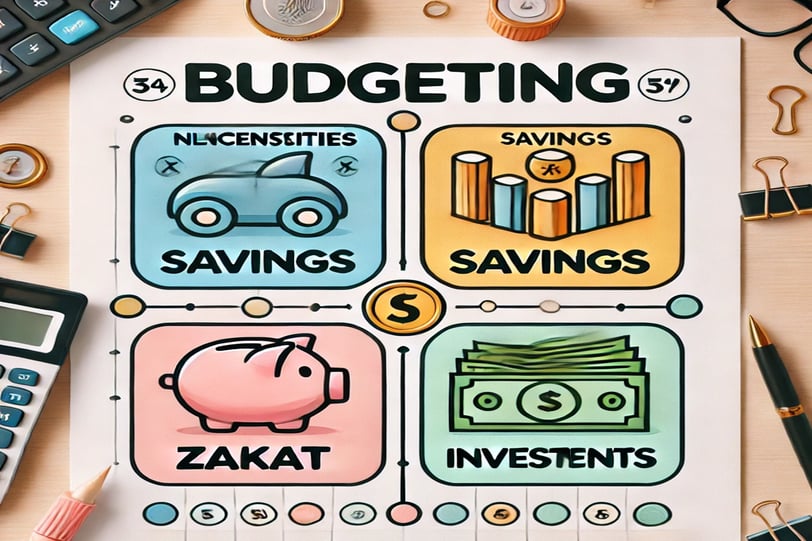Mastering Halal Budgeting: A Step-by-Step Guide to Financial Harmony
Learn the art of creating a halal budget that aligns with Islamic principles. This guide simplifies the process of managing your income and expenses while staying true to your faith.
12/9/20241 min read


Managing finances in line with Islamic teachings requires intention, discipline, and a structured approach. A halal budget not only ensures that your spending aligns with your values but also fosters barakah (blessings) in your wealth. Here's a step-by-step guide to master halal budgeting:
1. Identify Your Income Sources
Understand your total monthly income, ensuring all sources are halal. This includes your salary, business profits, or other permissible earnings.
2. Separate Mandatory Dues (Zakat and Sadaqah)
Allocate a portion of your income for zakat and voluntary charity (sadaqah). These are essential to purify your wealth and support those in need.
3. Prioritize Essentials
List your necessary expenses, such as:
Rent or mortgage
Utilities
Food and groceries
Education
These should take precedence in your budget.
4. Create Savings Goals
Allocate funds for short-term and long-term savings. Whether it's for Hajj, a family emergency fund, or a future investment, saving ensures financial stability.
5. Invest Wisely
Explore Shariah-compliant investment options, such as Islamic mutual funds, sukuk, or halal stocks. Investments should grow your wealth ethically and sustainably.
6. Track and Review Regularly
Use apps or budgeting tools to monitor your income and expenses. Reviewing your budget monthly ensures you stay on track and make adjustments as needed.
7. Avoid Interest-Based Transactions
Stay away from riba (interest) in loans, credit cards, or savings accounts. Opt for Islamic banking services to keep your financial dealings halal.
By following these steps, you can achieve a balanced financial lifestyle that brings peace of mind and spiritual fulfillment. Remember, budgeting is not just about controlling your money; it’s about aligning your financial decisions with your values.
Subscribe
Copyright © 2024 Halal Dirhams
